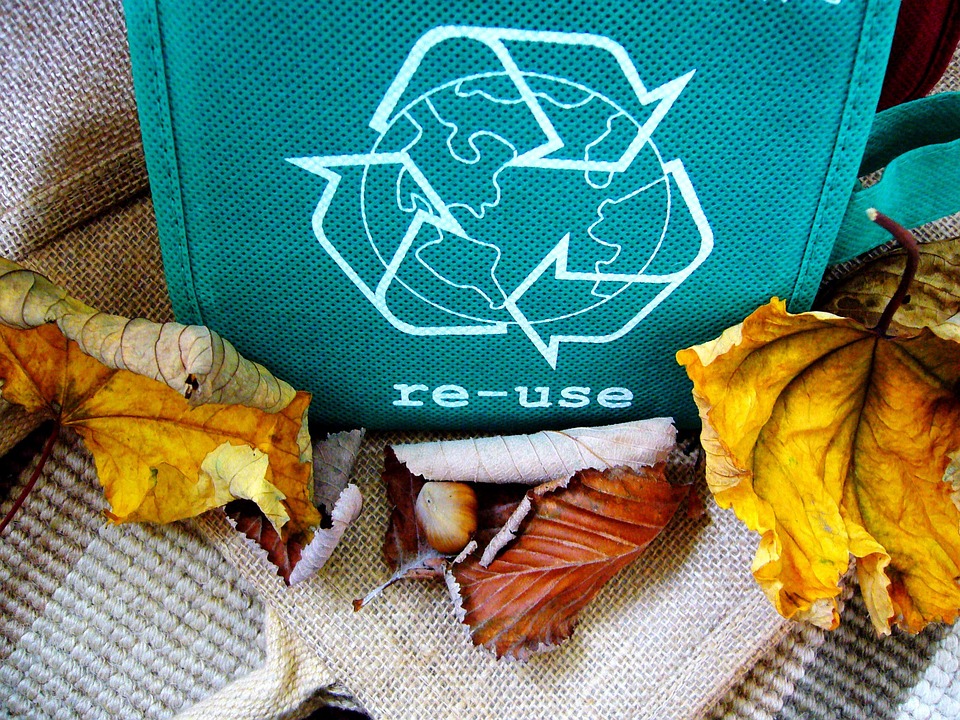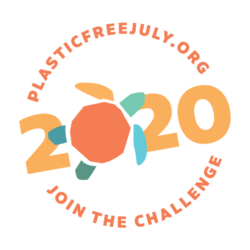
Tips for a Plastic-Free July
July marks an opportunity for us all to reflect on and change our own habits with Plastic Free July, a global movement that helps millions of people be part of the solution to plastic pollution. As part of Plastic Free July, you have the opportunity to take part in a challenge to live without single-use plastics as much as possible. The end result is cleaner streets, waterways, and communities.
Plastics affect all ecosystems but millions of tons of plastic debris alone finds its way to the ocean each year. Taking the Plastic Free July pledge is just the start of your ability to make positive change on our blue planet. Here are just a few ways anyone can remove plastic from their routine this month (or permanently!):
Bring your own straw, whether metal, silicone, glass, or bamboo. The average lifespan of a plastic straw is 12 minutes and many of them end up in the ocean, harming wildlife and never decomposing.
Choose reusable produce bags made of mesh, cloth, or other material, and pack them into the reusable grocery bags you bring with you to the store. Some grocery stores even offer you a discount when you bring your own bags.
Refuse single-use utensils and dishes, especially when ordering take-out. Some delivery apps and websites offer the option to decline single-use items by default and it’s just as easy to ask a restaurant to skip the plastic so you can use what you have at home.
Use a reusable bottle for water and opt for aluminum cans or glass bottles when you want a soft drink. There are even home appliances that allow you to make fizzy drinks!
Swap single-use plastic sandwich bags for reusable containers or beeswax wraps.
Go beyond prevention and remove plastic from the environment by having a socially distant cleanup in your community. You can even make it an event for all ages by seeing who can collect the most debris or find the most unique items.
Learn more about the issue! Watch films uncovering the harms of plastics including our very own Papahanaumokuakea Marine Debris video.
And tips for those wanting to take their plastic free journey to the next level:
Learn to make your own personal care products at home, such as lip balm, deodorant, or shampoo.
Pack your lunch instead of buying when you can. When you do dine out, bring your own containers for leftovers.
Replace bottled soaps with bars. Choose razors and toothbrushes made from materials like bamboo instead of plastic.
Shop in bulk stores, which encourage shoppers to bring their own containers.
Buy your fresh foods locally at a farmer’s market or even directly from a local farm.
We understand that our plastic problem is overwhelming, but there are some amazing organizations, communities, and individuals taking action to tackle the issue. Here are some stories of ocean optimism that might inspire you to take part:
National Fish and Wildlife Foundation’s (NFWF) Papahānaumokuākea Research and Conservation Fund announced more than $1 million in funding to support management and conservation of Papahānaumokuākea Marine National Monument including grants to Papahānaumokuākea Marine Debris Project to remove an estimated 240,000 lbs of derelict fishing gear and plastics, restoring 1,300 acres of coral reef habitat and 400 acres of shoreline habitat and another grant to us at the Foundation to focus on community engagement and education through the Mokupapapa Discovery Center.
In its first year, our Goal: Clean Seas program conducted 49 cleanup dives, engaged 450 volunteer divers, and spent nearly 900 hours underwater removing 78 intact lobster traps, hundreds of pieces of lobster trap debris, 16,369 feet of line, and 14,693 pounds of debris from Florida Keys National Marine Sanctuary.
Earlier this year, NOAA’s Marine Debris program in partnership with National Fish and Wildlife Foundation announced the six recipients of the 2019 Hurricane Response Marine Debris Removal Fund. The funds will support projects to assess, remove, and dispose of marine debris that was caused by or moved by the storms and prevent further harm to habitats and fish and wildlife populations.

